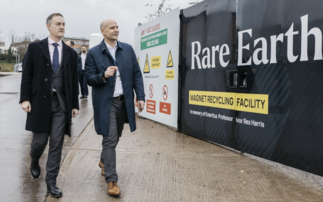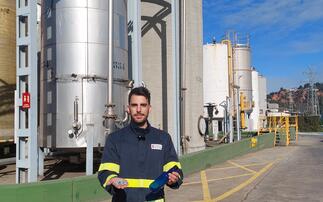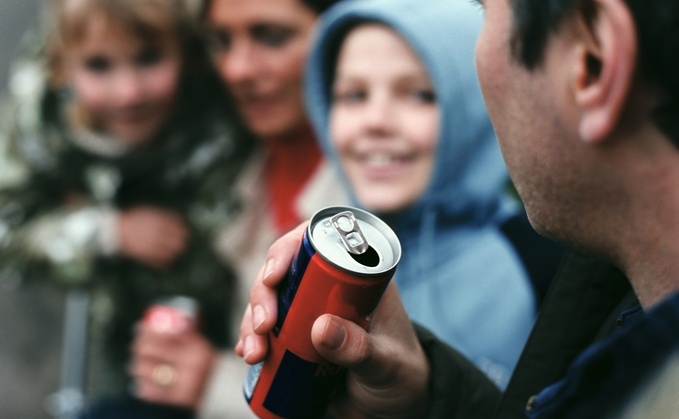
Partner Insight: The Global Beverage Can Circularity Alliance - an initiative of the International Aluminium Institute -explains why the future is circular, and packaged in an aluminium can
As the world's leaders, innovators, and thinkers gather for Climate Week NYC, the decarbonisation conversation will turn to every facet of our lives, from the cars we drive to the food we eat. But for the beverage industry, the traditional debate between glass and plastic is a distraction from the real solution: the aluminium drinks can.
The Global Beverage Can Circularity Alliance (GBCCA), an industry-led coalition with ambitious goals to achieve a global recycling rate of 80 per cent by 2030 with 87 per cent of all recycled cans going back into cans in the next five to 10 years, will be making a powerful case at Climate Week for aluminium's role in establishing a circular economy across the entire beverage can value chain. Key for achieving these goals is to have ideally separation at the consumer level and if not possible using technology that separates cans from the waste and generates high quality cans for recycling.
"Reaching the 2030 targets hinges on a dual approach," says Alison Lee, director for corporate sustainability at Novelis, a GBCCA member. "We must invest in the technology that makes recycling more efficient and advocate for the policies that make it a consumer norm."
Glass, plastic, or aluminium?
The scale of the challenge is immense. By 2030, the global beverage can industry will produce 630 billion cans annually. The most common materials used for beverage packaging – aluminium, glass, and PET plastic – each have their own environmental challenges, but their circularity potential varies wildly.
A recent report by the International Aluminium Institute (IAI) highlights this disparity between materials. Globally, only 34 per cent of glass bottles and 40 per cent of PET plastic containers are recycled, while 70 per cent of aluminium cans are recycled. The issue is further compounded by downcycling: only 20 per cent of glass bottles are recycled into new bottles, and a mere seven per cen of PET plastic containers are recycled into new containers. In contrast, 33 per cent of aluminium cans are recycled into new cans, a figure the GBCCA is determined to see rise exponentially, as a 60 per cent to 70 per cent used beverage can (UBC) recycled content can be reached without changes to remelt operations or alloy properties globally.
Aluminium's superpower is that it can be infinitely recycled without any loss of quality. The advantages of aluminium also extend beyond its recyclability. Its light weight offers substantial logistical and carbon savings. Last April, Aldi UK launched its first own-brand aluminium wine bottle. Fully recyclable and weighing a mere 95g, it is nearly 75 per cent lighter than a standard glass bottle. This weight reduction saves over five tonnes of CO2 emissions per lorryload, a saving equivalent to the weight of an adult elephant.
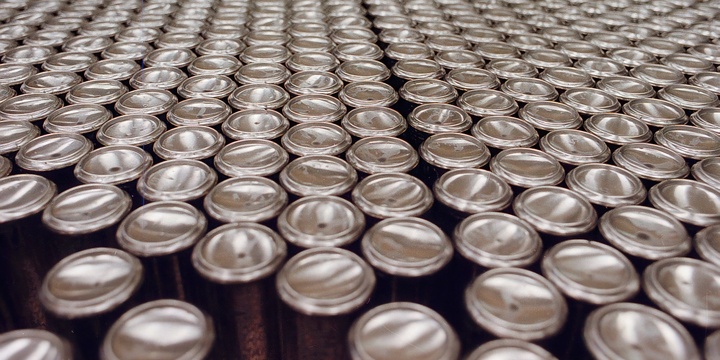
Delivering solutions
The key to increasing beverage can recycling rates lies in technological innovation and policy. The GBCCA is hosting an ‘Investment and Technology Spotlight Session' at Climate Week as part of the IAI's event ‘Aluminium in Action: How Beverage Cans Are Closing the Circularity Loop.' This session will spotlight breakthrough technologies designed to accelerate recycling rates.
AI systems capable of extracting aluminium beverage cans from unsorted municipal solid waste streams, are revolutionising the sorting process.
"Advancing technology solutions can significantly boost recycling," says John O'Maoileoin, group sustainability director at CANPACK Group, a GBCCA member. "However, technology alone isn't enough. Policy changes that help to shift consumer behaviour are equally crucial. The consumer is the first and most critical link in the circular chain. If we can't get the can back, no amount of advanced sorting technology can help us achieve our goals."
In the UK, over 17 million single-use drinks bottles and cans go to waste every day. In response, in May this year, the government followed the lead of countries such as Germany, the Republic of Ireland, and Sweden and introduced a Deposit Return Systems (DRS) scheme for aluminium – and steel – drinks cans and plastic bottles. DRS is proving to be a success in Europe, with the average return rate for countries with a scheme being 87 per cent, with Germany top at 98 per cent.
"By advocating for and supporting the implementation of such systems globally, the GBCCA is tackling the ‘last mile' problem of getting the can from the consumer back to the recycling facility," says Najeeba Al Jaberi, chief ESG & sustainability officer at Emirates Global Aluminium.
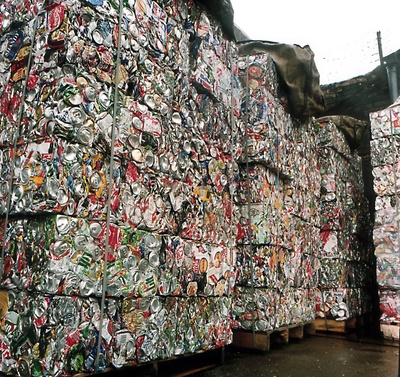
The economic case
The final piece of the puzzle is the compelling business case for the GBCCA's mission. Recycled aluminium isn't waste; it's a high-value commodity. Unlike other materials, recycled aluminium has a robust market, which helps to subsidise the recycling infrastructure and create a resilient, closed-loop supply chain. This reduces the beverage industry's reliance on primary production and protects against market volatility and resource scarcity.
"The GBCCA is not just an environmental initiative," says Mauritz Faenger-Montag, head of external affairs at Speira, "It's also an economic one – the alliance represents a powerful lever. A circular economy for aluminium cans reduces costs, keeps a strategic raw material in regional loops, and creates a more sustainable business model for the wider industry."
The message from Climate Week NYC is clear: The future is circular, and it's packaged in an aluminium can.
This article is sponsored by the Global Beverage Can Circularity Alliance (an initiative of the International Aluminium Institute).





